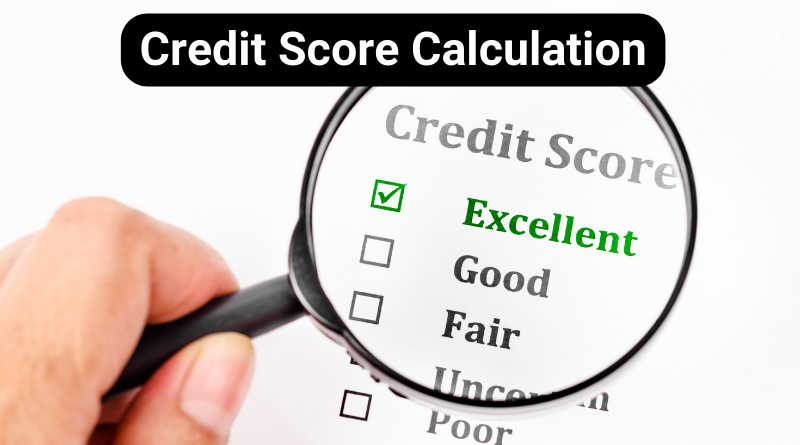How Is Your Credit Score Calculated? Breaking Down the Factors
1. Introduction
Your credit score is one of the most critical numbers in your financial life. It determines whether you’ll qualify for loans, credit cards, or even rental properties and affects the interest rates you’ll pay. A strong credit score can save you thousands of dollars over your lifetime, while a poor one can limit financial opportunities. But how exactly is your credit score calculated? In this post, we’ll break down the key factors and provide insights to help you maintain or improve your score.

2. What is a Credit Score?
A credit score is a numerical representation of your creditworthiness, showing lenders how likely you are to repay borrowed money. It’s calculated based on information from your credit reports, which track your borrowing and repayment behavior.
Common Scoring Models
- FICO Score: The most widely used scoring model, ranging from 300 to 850.
- VantageScore: Another scoring model, also using a 300–850 range, but with slightly different criteria.
Credit Score Ranges
- Excellent (800-850): Exceptional creditworthiness.
- Good (740-799): Likely to qualify for favorable rates.
- Fair (670-739): Average creditworthiness.
- Poor (580-669): May face challenges in getting approved for credit.
- Very Poor (300-579): High risk to lenders; likely to be denied credit.
3. Key Factors That Determine Your Credit Score
Credit scoring models like FICO assign different weights to each factor that influences your credit score:
1. Payment History (35%)
This is the most critical factor in determining your credit score. It reflects your history of making payments on time for credit accounts like credit cards, loans, and mortgages.
- Why It Matters: Late payments, defaults, or bankruptcies signal to lenders that you might not reliably repay debts.
- Improvement Tips:
- Set up automatic payments or reminders to ensure bills are paid on time.
- If you miss a payment, contact the lender immediately and arrange a repayment plan.
2. Credit Utilization (30%)
Credit utilization refers to the percentage of your total available credit that you’re currently using.
- Calculation Example: If your total credit limit is $10,000 and you owe $3,000, your utilization rate is 30%.
- Ideal Rate: Keeping your utilization below 30% is optimal; under 10% is even better.
- Improvement Tips:
- Pay down balances before the statement closing date.
- Request a credit limit increase to lower your utilization rate (but avoid using the additional credit).
3. Length of Credit History (15%)
This measures the age of your credit accounts, including the average age of all accounts and the age of your oldest account.
- Why It Matters: Longer credit history shows stability and responsible credit management.
- Improvement Tips:
- Avoid closing old accounts, even if you’re not actively using them.
- Be cautious when opening new accounts, as it lowers the average account age.
4. Credit Mix (10%)
This factor evaluates the variety of credit types in your report, such as revolving credit (e.g., credit cards) and installment loans (e.g., auto loans, mortgages).
- Why It Matters: A diverse credit mix shows lenders that you can handle different types of credit responsibly.
- Improvement Tips:
- Don’t take on unnecessary loans just to improve your credit mix.
- Focus on responsibly managing the credit types you already have.
5. New Credit Inquiries (10%)
New credit accounts and hard inquiries from lenders affect your score. Hard inquiries occur when a lender checks your credit report during the application process for a loan or credit card.
- Why It Matters: Too many inquiries in a short time may signal financial distress or over-reliance on credit.
- Improvement Tips:
- Limit applications for new credit unless necessary.
- When rate shopping (e.g., for a mortgage), make inquiries within a short window to minimize the impact.
4. Additional Factors That May Affect Your Credit Score
Closed Accounts
Closing an account reduces your total available credit, which can increase your utilization rate and lower the average age of accounts.
Debt Settlements
Settling debts for less than the full amount can negatively affect your score, as it signals financial difficulty.
Errors on Credit Reports
Errors, such as incorrect account balances or accounts that don’t belong to you, can hurt your score. Regularly review your credit report to catch and dispute errors.
5. How Credit Scores Are Weighted
Credit scoring models like FICO and VantageScore weigh the factors differently. For example, FICO places more emphasis on payment history and credit utilization, while VantageScore may weigh factors like credit mix and age slightly higher. Understanding these differences can help you focus on improving the most impactful areas.
6. How to Monitor Your Credit Score
Tools for Checking Your Score
- Free credit monitoring apps like Credit Karma or Credit Sesame.
- AnnualCreditReport.com for free credit reports from major bureaus (Equifax, Experian, TransUnion).
Importance of Monitoring
- Identify errors or fraudulent activity early.
- Track changes and understand how financial decisions impact your score.
7. Tips to Improve Your Credit Score
- Pay Bills on Time: Your payment history accounts for 35% of your score, so prioritize making timely payments.
- Reduce Credit Card Balances: Lower utilization rates by paying down balances.
- Avoid Opening Unnecessary Accounts: Limit new credit inquiries and avoid opening accounts just for perks.
- Keep Older Accounts Open: The age of your accounts contributes to 15% of your score.
- Check Your Credit Report Regularly: Dispute inaccuracies to ensure your report reflects your actual credit behavior.
8. Conclusion
Your credit score is influenced by multiple factors, but understanding how it’s calculated gives you the power to make informed decisions. Focus on paying bills on time, maintaining low utilization rates, and managing credit responsibly to build and maintain a strong score. By proactively monitoring your credit and adopting good financial habits, you can secure better financial opportunities and achieve long-term stability.


